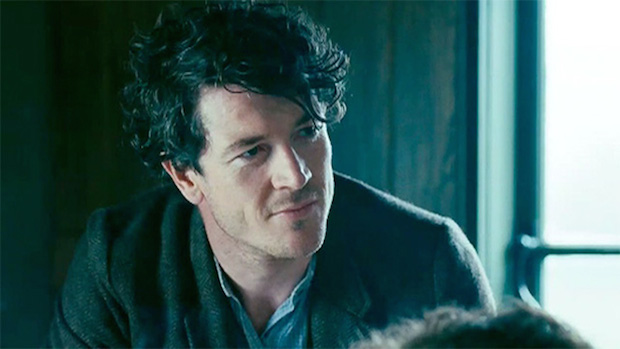I hadn’t seen a Ken Loach film in years because I got sick of his schmaltzy sexism but yesterday decided to give him another try and popped along to see his latest, Jimmy’s Hall. Set in 1930s Ireland, it tells the true-life story of self-educated, community-serving James Gralton, who enraged the Catholic church and the local land owners by setting up a community centre that served as a meeting place for ideas and, God forbid, dancing.
Perhaps he’s returned to form, I thought on my way to the cinema, and produced something gutsy like Cathy Come Home or Kes. These story lines usually warm my cynical old heart, so I approached Jimmy’s Hall with a hopeful spring in my step. In truth, the only reason I decided to give Loach another chance is because it is set in County Leitrim, where my dog is from (anyone thinking this is a tenuous link please note that I am a middle-aged lesbian).
But Jimmy’s Bar is a load of old sexist shite, and having endured it to the end, I have to admit that Loach could not give a hoot about women. The two female characters in Jimmy’s Hall are a love interest – all fluttering eyelids and coy glances – and a classic Irish mammy, her apron-clad bosom heaving as she busies herself worrying about her sons and the consistency of her Irish stew. What hurts most is that the mammy – played by first-timer Eileen Henry – was the best of the bunch, but, because she wasn’t there for her tits and ass, she was underused. Loach saves complexity for the character of nasty Father Sheridan, the priest who hates Jimmy.
Loach is a man of the people, but only people with a penis. Like me, he is a socialist, concerned with telling the story of working-class struggles. A posh boy, educated at grammar school and Oxford University, Loach proves that you don’t have to be born into poverty to decide to fight for the working class. He is, nevertheless, a classic example of the leftist dinosaur in the mould of Julian Assange, George Galloway and Tommy Sheridan.
Recently Loach poured scorn on film critics, accusing them of being reluctant to ‘engage with stories that do not “fit their preconceptions” [of] working-class characters who deviate from stereotypes such as “thugs, drug dealers or whores . . . the victims of their predicament rather than architects of its change”’. What about the lazy, sentimental portrayal of the role of women in his films, largely there to fuck and cook?
Female characters such as Oonagh, Jimmy’s childhood sweetheart, are always in some type of heterosexual confinement, with a man hanging around to define them. Loach appears not to know gay people exist.
In 2011 Loach told The Guardian about his work being censored for political reasons: ‘It makes you angry, not on your own behalf, but on behalf of the people whose voices weren’t allowed to be heard.’ As a feminist I know what Loach means, he and other dick-swinging filmmakers constantly write real women and our struggles out of history.
By the way, not once during the entire film – set, remember, in the Republic of Ireland – with the greenest mise en scène I’ve ever seen, did it rain. This, along with his one-dimensional female characters, helped to make Jimmy’s Hall the most unrealistic of Loach’s career.
Give me Tarantino any day.







Comments